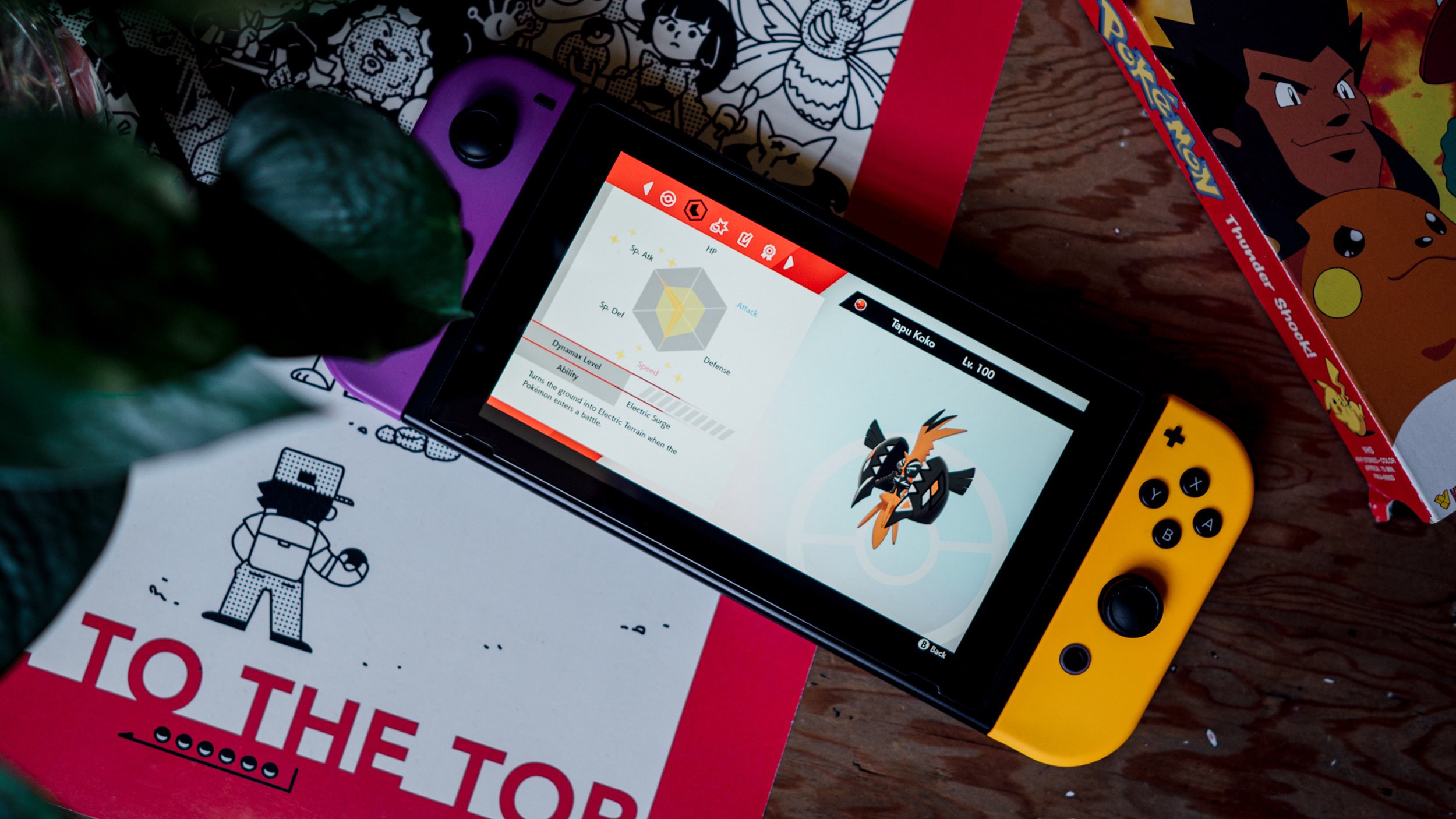
When do You Move on From a Team?
9min 36sec read
Learn how to decide when it's time to stop working on a team.
Written by Wolfe Glick
Teambuilding / Pitfalls
There are ebbs and flows to each team’s performance-- you might find yourself winning a tournament one weekend and then losing quickly the next. It can be especially disheartening to lose with a team that you once found success with, or with a team that you really like. You might feel like you need to move on or try a different tactic, but you’re not sure if it’s the right thing to do. This is a natural situation that many VGC players find themselves in-- and here are our tips for when or when not to put a favorite team behind you.
What does it mean to “move on” from a team?
You can only bring one team to a tournament-- for this reason, usually players only have one team that they’re currently working with at a time. "Moving on" means stopping work on one team and picking up a different one.
Note that moving on from a team doesn’t mean that it was a waste of time. You definitely learned something by building it and/or battling with it. Furthermore, although the main goals on a new team might be different, you could potentially include your favorite concepts from your original team as well. Finally, it’s okay to leave a team on a shelf and come back to it later-- moving on doesn’t mean you’re done with the team forever! When you return to an old team with a fresh perspective, you’ll often fix old problems in new ways.
“Remember, not all weaknesses are created equally. I personally am ok with having some harder matchups, but I try to avoid matchups that put me at an especially large disadvantage. There is a difference between “this matchup will be hard for me but if I play well I can win” and “I have almost no options in this matchup, even if I play much better than my opponent I may still lose”.”
Move on if you’re not having fun battling
VGC battling is something that I enjoy-- if I’m not having a good time, I need to take a step back and reconsider my thought process. Having fun with a team is one of the first things that I look for when I pick teams for serious high-stakes tournaments, but it applies to any context in which you’ll play VGC. If a team doesn’t feel fun, it may be a sign that the underlying thought process doesn’t click intuitively, or that you have some underlying issue with the team that’s challenging to put into words.
Move on if you’re not in control of your battles
A good goal in a VGC battle is to control the game and to force your opponent to react to what you’re doing. Furthermore, when you’re in control, you’ll have many options for possible moves. Your team may not be doing you favors if you frequently find yourself forced to make certain moves or risk losing the game instantly. Misplays during battling are not always your fault as a battler. If you're frequently losing games because a prediction goes wrong for you, that may be a sign that your Pokémon don't let you fully take control of a game.
EXAMPLE
In the semi-finals of the first Player's Cup, Yuri pilots a more standard team against Santino’s Coalossal team. In game 1, Yuri leads Excadrill and Rotom (two Pokemon with a positive matchup against Coalossal) against Santi’s Coalossal and Dragapult. This puts Yuri in a tough position - they can Dynamax Excadrill but risk losing Excadrill to a Max Flare and Surf. Alternatively, they can Dynamax Rotom, but if Santino goes for Max Flare and Surf Rotom won’t be able to pick up a KO with Max Geyser thanks to the sun being up.
Because of this, Yuri makes what I consider to be an extremely intelligent play - they go for Dynamax and Max Guard with Excadrill, to prevent the Sun from going up to allow Rotom to KO Coalossal with Hydro Pump. Unfortunately for Yuri, Santino instead goes for Max Overgrowth and KOs Rotom in game 1.
Yuri made a good play here, but it doesn’t pay off in large part because Santino identifies that Yuri is backed into a corner. Nearly every play Yuri has access to will lose to the combination of Surf and Max Flare. By identifying this, Santino is able to make an educated prediction and gain an enormous lead that leads him to victory in the first game.
In game 2, Santino makes the same play while Yuri adjusts, but Santino still ends up winning despite his Coalossal getting knocked out on turn 1. In these games, Santino had many more viable options each turn (especially early) than Yuri, and it gave a tangible advantage that resulted in his victory.
I wanted to highlight these games in particular because 1) I think Yuri played well and made good adjustments and 2) I think Yuri’s team was overall well built. It’s a good lesson that even if you find yourself in control of most of your team's matchups, running into a matchup where you aren’t in control against a good player can be devastating for a tournament run.
It’s up to you to decide which matchups you feel comfortable not being in control of, if any at all. Sometimes teams will win tournaments despite having some really difficult matchups, but there will also be times where you run into a niche rough matchup more than you expect. Even though Yuri lost this set, the decisions they made weren’t inherently wrong. Selecting a team for a tournament and deciding where and how much control you’re willing to give up are personal decisions and can’t be evaluated on a binary right or wrong decision axis.
Move on if you believe the metagame has shifted to become unfavorable
One reason that you might struggle is that a recent metagame development has disadvantaged your team. Adjusting in this situation can be as easy as changing one Pokémon or its moves, which we definitely recommend thinking about. Sometimes, the goals of your team are fundamentally weak to what you see on a majority of teams, and that can either be due to bad luck, or maybe the metagame has turned against your team in particular. Your options are either to stubbornly choose the uphill battle with your current team, or to switch to a new strategy-- we recommend the latter.
If you’re running into a rough patch on the ladder, however, that isn’t always representative of the metagame. Rather than instantly throwing your team out the window, reevaluate in a few days– sometimes, portions of the ladder get weird, and you don’t notice the same trend the next week.
Move on if you feel your opponents are too prepared for your team’s options
This scenario can happen either when you play a common team and your opponents clearly have countermeasures, or if you’re running a nonstandard element on your team that isn’t consistent enough to beat opponents.
In the former scenario where your opponents respect your strength, if you feel like you’re at a disadvantage in every game, it may be worth thinking about whether the metagame has accommodated your team. This is not always an insurmountable barrier, as many Pokémon are strong enough to resist counterplay measures. However, you’ll have to take a step back to think about how to use your Pokémon in this situation, and maybe switch up either your play or the details of your team to better respect your opponent’s counterplay. If you don’t like that your opponents understand your team in the first place, you’ll definitely want to change things up.
In the latter scenario, where your opponents seem naturally ready for your tactics, it may be worth reconsidering weaker parts of your team.
EXAMPLE
The 2016 format featured the strongest team archetype I have ever seen in my 10+ years playing VGC. Nicknamed “Big 6”, it featured Groudon, Xerneas, Kangaskhan, Smeargle, Salamence, and normally one of Cresselia/Bronzong/Talonflame. This team was so strong that despite people identifying early that it was the team to beat, it continued to have success for the entire year, even winning multiple National Championships shortly before the World Championships. However, by the time the World Championships came around, players had finally figured out consistent counterplay. This resulted in Big 6 having only two finishes in the top 8 of the world championships, despite its format-long success, with both of those teams having unique perspective on a played-out archetype.
Move on if you’ve tried everything and it just doesn’t work
Sometimes a team almost works: it’s very close to being a complete concept, but just keeps missing the mark. You’ve tried everything in that last slot, but you’re not finding the success that is so close by. This is a case of sixth Pokémon syndrome, which we have a separate article on. In this scenario, it’s much more likely that the first five Pokémon on your team are the culprit of the team feeling incohesive. Take another look at them, and if you find a solution, great– but if you keep trying and nothing works, it may be worth dropping the concept partially or entirely.
Caution: reconsider moving on if a big tournament is close
Are you reading this article because a tournament is coming up? Locking in a team on the first day of a tournament that you’ve spent weeks preparing for is a stressful decision to make. As the clock marches down and a large tournament approaches, it’s natural to get second thoughts about whatever team you’re going to choose, especially if you suffer a big loss or discover an important weakness of your team. Stay calm and evaluate your situation carefully. The first thing to consider is– how much time do you have left before the tournament? Weigh that amount of time versus how long you think it will take you to make or find a new team and become comfortable on it. Secondly, seriously evaluate the flaws of your team and whether you can outplay opponents despite them. In our opinion, locking in a knowingly flawed but well-practiced team typically leads to better performance than a team made in the last few minutes.
For more on this, check out our article on what to do when the clock winds down.
Wrapping Up
It’s not only challenging to say goodbye to a team because you need to start over, but it’s also personal– we invest a lot of time and creative energy into our teams. In the most extreme example, a team can feel like an extension of ourselves, and thinking that it might be flawed can feel like admitting a weakness in your own philosophy. Know, though, that your job as teambuilder and team selector are separate. When teambuilding, you have to be creative and follow through on your ideas. When selecting a team to battle with, you have to be honest with yourself and factually evaluate your team’s strengths and weaknesses– especially if you’re picking a team for an event that you care about.
If you don’t want to move on from your team, you don’t have to– it’s great to have a team that you feel comfortable on, and you shouldn’t lose that because of a moment of doubt. But if you’re genuinely on the fence, and your team doesn’t meet the criteria above, you might want to consider making or using something new.

